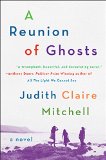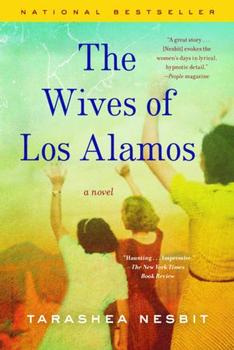Summary | Excerpt | Reviews | Beyond the book | Read-Alikes | Genres & Themes | Author Bio

Frederick Engels*, co-author with Karl Marx of The Communist Manifesto (1848), did not believe in marriage. The Mrs. Engels of Gavin McCrea's debut novel, is therefore not Engels' wife in the eyes of the law, even though Lizzie Burns lived with him for many years.
This is just one facet of the enormously rich and complex relationship McCrea has imagined around the bare biographical facts that are known about Lizzie. The story is anchored in the eight years Lizzie and Frederick lived together in London — between 1870 and 1878 — but also delves into the past when Frederick was the owner of the Manchester cotton mill that employed Lizzie and her older sister Mary.
 Lizzie is not a romantic. She is an illiterate young woman of Irish descent with a dry sense of humor, a tendency toward blunt honesty and plain speaking, and a determination to make her own choices and live with the consequences. On the face of it, therefore, she seems an odd choice of companion for a famous economist, philosopher and wealthy businessman, engaged in creating a new branch of political science. It is not even certain that this is a love match. The novel opens with Lizzie declaring that "There's things we can go without, and love is among them, bread and a warm hearth are not." But although she suggests her arrangement with Engels is a financial one, it is quickly clear that there is much more going on here. Lizzie is pre-occupied about Frederick's past relationships, as well as her own early love for an Irish revolutionary, and, as the novel moves between past and present, complex feelings and misunderstandings are revealed.
Lizzie is not a romantic. She is an illiterate young woman of Irish descent with a dry sense of humor, a tendency toward blunt honesty and plain speaking, and a determination to make her own choices and live with the consequences. On the face of it, therefore, she seems an odd choice of companion for a famous economist, philosopher and wealthy businessman, engaged in creating a new branch of political science. It is not even certain that this is a love match. The novel opens with Lizzie declaring that "There's things we can go without, and love is among them, bread and a warm hearth are not." But although she suggests her arrangement with Engels is a financial one, it is quickly clear that there is much more going on here. Lizzie is pre-occupied about Frederick's past relationships, as well as her own early love for an Irish revolutionary, and, as the novel moves between past and present, complex feelings and misunderstandings are revealed.
Mrs. Engels is an enjoyable novel on many levels. Lizzie's voice is tremendously well handled and Victorian London, as described through her wry eyes, explodes on the page. She faces interesting challenges: being expected, for example, to befriend Karl Marx's wife Jenny, a German baroness, highly preoccupied with worries about her children. Lizzie must also manage maids and kitchen staff when she has not been brought up to run a house with servants. There has been something of a publishing trend in recent years of stories told from the point of view of the wife or mistress of famous men: The Paris Wife, Mrs. Poe, Freud's Mistress and Z: A Novel of Zelda Fitzgerald to name but a few, and the insight into the work of Marx and Engels adds another layer of interest here. Lizzie's perspective on their work lends humor to the story. She declares at one point, for example, that:
The revolution has happened. In my parlour. Chairs overturned. Empty bottles on the chimneypiece. Half-full glasses among the plants in the pots. Fag ends in the necks of the lamps. The clod from someone's pipe stuck onto Jenny's horse painting, right where its bit ought to be. And on the sofa, head to foot and snoring, their clothes screwed tight about them, morning wood standing up in their breeches: men I don't recognize.
While the secrets of the past and Lizzie and Frederick's complex feelings toward each other keep the plot moving, the main joy is in Lizzie's character and spirit. Despite struggling with illiteracy, financial dependency, guilt and self-doubt, she remains forward-looking and optimistic. As she says herself, "What can you do, only press ahead?"
*Editor's Note: Friedrich Engels is referred to as Frederick Engels in the novel, which is why we have kept his name as Frederick in the review and Friedrich in the Beyond the Book section.
![]() This review
first ran in the October 21, 2015
issue of BookBrowse Recommends.
This review
first ran in the October 21, 2015
issue of BookBrowse Recommends.

If you liked Mrs. Engels, try these:

by Judith C. Mitchell
Published 2016
Three wickedly funny sisters. One family's extraordinary legacy. A single suicide note that spans a century...

by TaraShea Nesbit
Published 2015
The Wives of Los Alamos is a bold and emotionally charged debut novel told in the collective voices of the wives of the men who created the atom bomb.




If every country had to write a book about elephants...
Click Here to find out who said this, as well as discovering other famous literary quotes!
Your guide toexceptional books
BookBrowse seeks out and recommends the best in contemporary fiction and nonfiction—books that not only engage and entertain but also deepen our understanding of ourselves and the world around us.